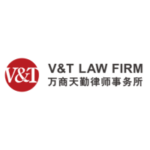-
What are the main methods of resolving disputes in your jurisdiction?
Litigation remains the main method of resolving disputes in Armenia. Courts of general jurisdiction are responsible for civil (including commercial) and criminal cases, while administrative courts are responsible for overseeing the actions and omissions of state bodies and agencies.
In addition to courts, commercial arbitration and mediation serve as alternative dispute resolution mechanisms. Arbitral awards or mediation agreements signed in accordance with the procedures regulated by law are accepted and enforced by the state. Moreover, the arbitral awards issued by established institutions (in contrast to ad hoc arbitration) of a value of up to 5 million AMD can be enforced directly without the involvement of the court. And finally, for specific types of cases, disputes involving the recovery of up to 2 million AMD by banks, financial organisations, and public utility companies are completed by Notaries.
-
What are the main procedural rules governing litigation in your jurisdiction?
The main procedural rules governing litigation in the Republic of Armenia (hereinafter the RA) are:
- Constitutional Law of the Judicial Code of the RA
- Civil Procedure Code of the RA,
- Administrative Procedure Code of the RA,
- The law on the compulsory enforcement of judicial acts of the RA,
For certain types of cases, the following laws are also applicable:
- The Law on Bankruptcy of the RA,
- The Law on Confiscation of Property of Illicit Origin of the RA,
- The Law on the Notary system of the RA,
- The Law on Mediation of the RA,
- The Law on Commercial Arbitration of the RA
In addition to the laws, international human rights standards, specifically the relevant case law of the European Court of Human Rights, which establishes fair trial standards (and other procedural rules), are also applicable based on relevant constitutional regulations.
-
What is the structure and organisation of local courts dealing with claims in your jurisdiction? What is the final court of appeal?
The judiciary of the RA is structured as a three-tier system:
- Courts of First Instance, including courts of general jurisdiction and specialised courts (Administrative Court, Bankruptcy Court, and Anti-Corruption Court);
- Courts of Appeal of the RA, including Civil, Criminal, Administrative, and Anti-Corruption Courts of Appeal.
- Court of Cassation of the RA, which includes Civil, Criminal, Administrative, and Anti-Corruption Chambers.
In addition to the courts as mentioned above, the Constitutional Court of Armenia is a specialised constitutional body entitled to review the constitutionality of legislation, including through the hearing of individual complaints.
-
How long does it typically take from commencing proceedings to get to trial in your jurisdiction?
The Civil Procedure Code (and Constitution) require that court cases be resolved within a reasonable time. In general, depending on the nature and complexity of the case, the examination in the court of first instance can take anywhere from one year onwards (usually not more than 2-3 years).
According to the Civil Procedure Code, a maximum period of six months is given to the Appeal Court to examine an appeal, while the Court of Cassation reviews cases and appeals within a reasonable time frame (there is a three months period for the Court of Cassation to decide, if they agree to accept the case, or reject the acceptance of the case).
For certain types of cases, the Civil Procedure Code establishes special, shorter timeframes. Such cases include, for example: labour disputes, procurement cases, cases related to enforcing the arbitral award, the return of a child who has been unlawfully transferred to or is being illegally kept in Armenia (civil abduction cases), and cases concerning the approval of a settlement agreement concluded through an extrajudicial procedure with the participation of a licensed mediator.
In administrative courts, the cases are usually heard at the first instance in shorter periods (usually around six to eight months), with some complex cases taking as long as several years, while the Administrative Court of Appeal is overloaded and usually hears the cases within one to one and a half years. The proceedings in the Administrative Court of Cassation are similar to those in the Civil Court of Cassation.
-
Are hearings held in public and are documents filed at court available to the public in your jurisdiction? Are there any exceptions?
According to the Constitution and the Civil Procedure Code, court cases shall be examined in public court hearings, and judicial acts are published on the official website of the judiciary (www.datalex.am). However, documents submitted in cases discussed in open hearings are accessible only to the parties involved in the proceedings. At the same time, judicial acts and documents related to cases initiated and examined through the electronic system are also accessible only to the parties to the proceedings. Still, the documents submitted to the court will be reviewed during the public hearing, which means that the broader public can become acquainted with them through attendance at court hearings (or via press reports about cases of public interest).
For the purpose of protection of the privacy of the participants of the proceedings, including trade secrets, interests of minors or the interests of justice, as well as national security, social order or morality, the court may, upon the motion of a person participating in the case or on its initiative, examine the case or a part thereof in a closed court hearing.
-
What, if any, are the relevant limitation periods in your jurisdiction?
According to our legislation, the general limitation period for civil claims is three years. In some cases, for bringing particular types of claims the law envisages special limitation periods: such as one year for challenging the validity of transactions, ten years for claims on invalidation of fraudulent and sham transactions, two months for allegations related to the modification or termination of an employment contract, three months for disputing actions or inaction of a notary, etc.
It should also be noted that there are no limitation periods for
- claims for the protection of personal non-property rights and other intangible assets, except for the cases provided for by law;
- claims filed with banks by depositors for repayment of deposits;
- claims for compensation for the damage caused to a citizen’s life or health. However, claims filed three years after the time of arising of the right for compensation of such damage for the past period shall be satisfied for not more than three years preceding the bringing of the action;
- claims for the elimination of each violation of the right of the owner or another possessor, even if those violations have not been related to dispossession.
- claims of the owner for declaring invalid the act of a state or local self-government body or the officials thereof, which has violated the owner’s rights to property possession, use and disposal;
- other claims defined by law (e.g. labour law claims on requesting the payment of salaries, etc.).
For administrative claims, the usual limitation period is two months from the date of issuance of the administrative act. For some specific types of claims, the period may be shorter (one month) or longer (up to ten years).
-
What, if any, are the pre-action conduct requirements in your jurisdiction and what, if any, are the consequences of non-compliance?
There is no general pre-action requirement as such foreseen by Armenian legislation. However, if the Contract requires a pre-action out-of-court settlement (such as negotiations for a specific period, mediation, etc.), the court shall not accept the claim until the pre-action procedures are completed.
The law also prescribes certain specific instances where an extrajudicial procedure must be followed. For example:
- family disputes subject to mandatory mediation (these regulations will enter into force on July 1, 2025),
- disputes arising from unilateral termination or alteration of a contract,
- Separation of the common property and some others
For some administrative acts, the law requires that the administrative act be appealed in the administrative hierarchy before allowing litigation (for example, in cases involving road police fines).
-
How are proceedings commenced in your jurisdiction? Is service necessary and, if so, is this done by the court (or its agent) or by the parties?
The proceedings start with submitting the claim to the court. Generally, the party submitting a claim is required to send a copy of the claim and accompanying documents to the defendants and provide the court with proof of delivery. Typically, the documents are sent via postal service. In cases the claim is presented via an electronic system (https://cabinet.armlex.am/), and the respondent is already a registered party (anyone who submits a claim once, becomes automatically registered for any future cases), the documents become accessible to registered users immediately upon upload, while parties not using the system (mostly individuals) continue to receive documents by postal service.
The law foresees several exceptions, when the claimant is not sending the claim and documents to the respondent, and the court carries out the service, which are the following situations:
- the claimant has filed a motion to apply a measure for securing the claim (preliminary injunction);
- The claimant has filed a motion to secure the evidence.
In such cases, the claimant must submit copies of the statement of claim and the attached documents equal to the number of parties involved in the proceedings. Upon the court’s acceptance of the claim and the resolution of the related motion(s), the court shall send these documents to the other participants in the case.
In administrative cases, the electronic system has not yet been enacted. The claimant is obliged to send the claim and attachments to the respondent and provide the court with the relevant proof (usually postal receipt or if the documents has been sent via electronic system, the generated code from the tracking system, or if the documents were served physically, the relevant notion on a copy confirming the receipt by the relevant state body).
-
How does the court determine whether it has jurisdiction over a claim in your jurisdiction?
All cases related to civil disputes, except for those under the jurisdiction of the Bankruptcy Court and the Anti-Corruption Court, fall within the jurisdiction of the courts of general jurisdiction. At the same time, there are specific rules that determine which particular court of general jurisdiction is competent to examine a given case (territorial jurisdiction). As a general rule, a claim must be filed with the court located at the place of registration or residence of the defendant.
In certain cases, the plaintiff has the right to choose the court in which they will file their lawsuit. For example, if the claim is filed against several defendants, it may be submitted to the court at the place of residence or registration of any one of them. In cases concerning alimony or divorce, the claim may be filed with the court at the claimant’s place of residence or registration.
In addition, unless the case falls under the compulsory jurisdiction regulation, the parties may agree in the contract to specify the jurisdiction of a particular court for disputes arising from the agreement.
The Civil Procedure Code also establishes rules on exclusive territorial jurisdiction, applicable to disputes involving immovable property and inheritance matters. A separate chapter of the Civil Procedure Code regulates proceedings involving foreign persons, including the circumstances under which Armenian courts have jurisdiction over such cases. These cases are:
- cases on rights over immovable property in the territory of the RA;
- cases on the adoption of citizens of the RA;
- cases on disputes arising from contracts on transportation, where the transporters are located in the territory of the RA;
- cases on divorce of citizens of the Republic of Armenia and foreign citizens or stateless persons, where the spouses reside in the RA.
There is only one Administrative Court, which, however, has several sites (locations), and hearings may take place in any of them, usually based on the distance from the defendant’s place of residence (most cases are heard in Yerevan).
-
How does the court determine which law governs the claims in your jurisdiction?
The court applies the substantive legal norms governing the disputed relationship, including conflict of law regulations, and for contractual disputes involving foreign elements, the law chosen by the parties. In the absence of norms regulating a specific relationship, the court may apply analogous statutory norms (analogy of statute) or shall resolve the dispute based on general principles of law (analogy of law) or also apply customary business practices.
In accordance with the Constitution, international treaties ratified by the RA are part of the legal system and shall be applied by the Courts. For example, the European Convention on Human Rights (as interpreted by ECtHR) is commonly referred to and applied by courts (especially for disputes related to defamation claims, protection of property rights and some others).
The Civil Procedure Code does not require the claimant to specify the legal norms underlying the claim; The claimant is obliged to state and prove the factual elements of the claim. However, if the claimant does specify norms on which the claim is based, the court is bound by the legal grounds indicated by the claimant.
-
In what circumstances, if any, can claims be disposed of without a full trial in your jurisdiction?
According to the Civil Procedure Code, courts may apply the following simplified procedures without conducting a full examination of the case on its merits: simplified proceedings, accelerated trial, and payment order proceedings.
Simplified proceedings are applied when the claim concerns recovery of a monetary amount not exceeding five million AMD (approx. 13.000 USD). The court may also apply this procedure if, for example, the parties have agreed to it, or if, before the court’s decision on the distribution of the burden of proof, the respondent has not objected to the claim, has not submitted a response, or filed a counterclaim. In such cases, the reasoning section of the judgment includes references to the plaintiff’s arguments relied upon by the court in reaching its decision.
Nevertheless, certain circumstances preclude the use of simplified proceedings, such as when it is necessary to question witnesses, examine evidence on-site, or perform other procedural actions.
Concerning accelerated trials, the Civil Procedure Code permits the court, in certain cases, to issue a judgment without conducting a full examination/trial of the case, including when:
- The claim amount does not exceed 200 times the minimum salary wage;
- the claim relates to divorce and/or recovery of alimony;
- the claim is manifestly well-founded or unfounded;
- The parties have agreed to apply the expedited trial procedure.
Payment order proceedings apply only in cases involving specific (identifiable and undisputed) monetary claims.
And also, if the claimant is not appearing at the court hearing twice without a justifiable ground, and is not asking the court to examine the claim in their absence, the court, by the motion of the defendant, shall leave the claim without consideration.
-
What, if any, are the main types of interim remedies available in your jurisdiction?
The Civil Procedure Code exhaustively defines the measures for securing a claim, which include the following:
- imposing an injunction order on the defendant’s property in the amount claimed;
- prohibiting the defendant from performing certain actions;
- prohibiting other persons from performing certain acts concerning the subject matter of the dispute;
- obliging the defendant to perform certain acts concerning the subject matter of the dispute;
- suspending the sale of the property in case of filing a claim about lifting the injunction;
- imposing an injunction on the property belonging to the claimant, but remaining under the possession of the defendant
- other remedies prescribed by law.
If necessary, the court may apply more than one measure for securing the claim.
It should also be noted that, according to the Civil Procedure Code, a party against whom a measure for securing a claim has been applied (defendant) may file a motion to obtain counter security from the party who requested the claim security, to secure for possible damages. If the court grants the motion on counter security measure, the claimant must transfer the counter-security amount to the court deposit account within three days of receiving the decision. If the party fails to fulfil this obligation, the court, upon the motion filed by the defendant, may remove the measure for securing the claim.
For administrative cases, when the court accepts the claim on invalidation of an administrative act, the latter is automatically suspended (there are some exceptions, related to the administrative acts necessary for the safety of the public, etc, e.g. the injunctions enacted by the food safety department and some others). For other types of claims, the court may enact security measures similar to those in civil cases, but also impose a specific security measure, such as a temporary satisfaction of the claim.
-
After a claim has been commenced, what written documents must (or can) the parties submit in your jurisdiction? What is the usual timetable?
Once the court renders a decision on accepting the statement of claim, the defendant is requested to submit a response to the claim within two weeks of receiving the court’s decision to accept the claim.
In addition to the response, if there are grounds to submit a counterclaim, the defendant is entitled to file a counterclaim before the court issues its decision on the distribution of the burden of proof.
Importantly, the defendant must present the factual basis for any objections prior to the court’s determination on the distribution of the burden of proof. However, the defendant remains entitled to submit legal arguments throughout the entire course of the proceedings.
There are no other required submissions, but the parties still may present position papers on specific parts of the process if they believe it may be helpful for the Court to reach the decision.
With respect to evidence, parties may submit supporting documents together with their claim or defence. In addition, the law obliges the court, at the time it rules on the distribution of the burden of proof, to also establish a deadline by which parties must submit evidence and file motions aimed at obtaining additional evidence.
And finally, the parties are allowed to present drafts of the court judgement within 3-5 days after the closing of the proceedings. The parties shall inform the court that they plan to submit a draft, and the court determines the exact time frame within which they are allowed to submit the draft. This document plays a role similar to post-hearing briefs or closing speeches applicable in criminal cases.
-
What, if any, are the rules for disclosure of documents in your jurisdiction? Are there any exceptions (e.g. on grounds of privilege, confidentiality or public interest)?
According to the general rule a person participating in the case shall be obliged to disclose before the court and the other persons participating in the case and, where possible, provide the evidence known to that person at that point, to which that person refers as a basis for proving that their claims and objections, before the expiry of the time limit determined by the decision on distributing the burden of proof.
The person participating in the case shall not have the right to destroy or conceal any evidence or impede in any other way the obtainment or examination thereof, by making the collection and submission of evidence impossible or difficult for other persons participating in the case. Where such facts exist, the impeding person shall bear the negative consequences of the fact to be proved remaining disputable (shift of burden of proof takes place).
At the same time, where the evidence is in the possession of a person participating in the case or a person not participating in the case, the party bearing the burden of proving the relevant fact may file a motion requesting the submission of such evidence, including information considered confidential under the law.
The said rule is not applicable related to the privileged information and documents, namely in case of attorney-client privilege, that preserves the communication between the attorney and the client, including also any information or documents that the client shared with the attorney, the content and nature of the council given by the latter, as well as the information and evidence (materials, carriers) that the advocate acquired during the course of the advocacy activity. Such information can be disclosed strictly in cases provided by law, such as if the client gave their permission, it is required in the lawsuit against the client or in the disciplinary hearing to prove or defend their arguments, it is required by the law «On Combating Money Laundering and Terrorism Financing», etc.
-
How is witness evidence dealt with in your jurisdiction (and in particular, do witnesses give oral and/or written evidence and what, if any, are the rules on cross-examination)? Are depositions permitted?
In the RA, proceedings in the court are generally conducted orally. In contrast, appeal and cassation proceedings are primarily conducted in writing, unless the court decides otherwise. Consequently, witness testimony is given orally in the courts of first instance. Appeal and Cassation courts review witness testimony through the examination of court hearing records (protocols), as all hearings are officially recorded.
Witnesses may include both parties to the case and individuals who are not participants in the case, provided they possess information relevant to the resolution of the dispute. A witness is summoned to the court upon the motion of a person participating in the case, or, in specific cases provided by law, on the court’s own initiative. The motion must specify the fact in relation to which the witness is to be questioned. Each witness is interrogated separately, without the presence of other witnesses.
At the start of the interrogation, the court verifies the witness’s identity, including name, date and place of birth, occupation, place of residence, and relationship with the parties. The court then warns the witness about the criminal liability for giving false testimony or refusing to testify, as per the procedure established in the Civil Procedure Code.
At the beginning of the interrogation, the court clarifies general information related to the witness, including their name, place of birth, occupation, place of residence, and the nature of their relationship with the parties to the case. Following this, the court warns the witness about the criminal liability for giving false testimony or for refusing to testify. The right to question the witness first belongs to the party who filed the motion to summon the witness, followed by other persons on the same side of the case. Thereafter, the opposing side is allowed to question the witness, and finally, the court may ask questions.
During the interrogation of the witness, leading or otherwise suggestive questions that guide the answer are not permitted. Leading or suggestive questions are strictly prohibited. The court may remove such questions on its own initiative or upon motion by a party.
If a party to the case, who is also acting as a witness, refuses to answer a question or to testify, the court may consider such refusal as unfounded. In such cases, the facts that the witness refused to testify about may be deemed proven by the court.
Furthermore, if the testimonies of two previously interrogated individuals contradict one another, the Civil Procedure Code allows for their confrontation (face-to-face interrogation) upon motion by a party or on the court’s own initiative.
In addition, the Law on the Notary system of the RA allows notaries to certify sworn declarations, with the person making the declaration being warned of their legal responsibility. Such declarations carry evidentiary value under the same law.
The Law on Advocacy of the RA provides that individuals who possess information relevant to a case can be questioned through an advocate’s inquiry. These written inquiries can also be submitted to the court as written evidence.
-
Is expert evidence permitted in your jurisdiction? If so, how is it dealt with (and in particular, are experts appointed by the court or the parties, and what duties do they owe)?
According to the Civil Procedure Code, expert opinion and explanation of a specialist are also types of evidence.
The court appoints an expert examination upon the motion of a person participating in the case (the court may call for an expert examination on its initiative only in cases provided for by law), and the Civil Procedure Code sets forth requirements regarding the form and content of expert conclusions.
A person participating in the case can also submit an expert’s opinion, but it is considered equivalent in its probative force to the expert opinion obtained by a court decision only when the expert who provided it confirms the opinion in writing before the court prior to the conclusion of the preliminary hearing, being forewarned of the criminal liability for delivering an obviously false opinion.
The Civil Procedure Code provides for the possibility of inviting an expert for interrogation in order to clarify their conclusion.
Regarding the specialist’s explanation, it is considered a separate type of evidence, and the examination of the specialist is conducted according to the procedure for interrogating a witness with the aim of exploring an area of special knowledge.
-
Can final and interim decisions be appealed in your jurisdiction? If so, to which court(s) and within what timescale?
The judicial system of the RA consists of three instances, and depending on the court and the type of judicial act being appealed, the appellate instances and the respective time limits for appeal differ.
Тhe final judicial acts and cases provided by law decisions of the Court may be appealed to the Civil Court of Appeal of the RA within the time limits specified below:
- The court’s final decision (civil judgment), as well as a decision to terminate proceedings, may be appealed within one month from the date of its publication.
- In cases of simplified and expedited proceedings, the Court’s final decision, as well as a decision to terminate proceedings, may be appealed within fifteen days from the date of its publication.
- An order for payment may be appealed within one month from the day the appellant became aware or could have become aware of the issued payment order.
- The interim judicial acts may be appealed within seven days from the date of receipt/publication (decisions of the Court of Appeal issued upon review of appeals against interim judicial acts are final and not subject to appeal).
Final and interim judicial acts of the Court of Appeal may be appealed to the Court of Cassation of the RA within the following time limits:
- A final judicial act of the Court of Appeal may be appealed within one month from the date of its publication.
- An interim judicial act of the Court of Appeal may be appealed within fifteen days from the date of its receipt.
Those who were not participating in the proceedings but whose rights and interests are affected by the final decision of the court can appeal (both to the Appeal and Cassation courts) against it within the period of three months from the moment they knew or should have known about that decision except for those that were notified about the claim, but didn’t want to participate in it.
An appeal for the review of a judicial act based on newly emerged or new circumstances may be submitted within three months from the date on which the relevant grounds, as provided by the Civil Procedure Code, have arisen.
-
What are the rules governing enforcement of foreign judgments in your jurisdiction?
The Civil Procedure Code sets out specific rules governing the recognition and enforcement of foreign court judgments. Key aspects include:
Recognition and enforcement may occur based on an applicable international treaty or the principle of reciprocity. Reciprocity is presumed unless the opposing party proves otherwise.
Final judgments issued by foreign courts in civil matters are eligible for recognition and enforcement in Armenia. This may also extend to decisions imposing interim or security measures.
Recognition will be denied if the foreign judgment contravenes the public order of Armenia, including violations of constitutional rights and freedoms.
Only judgments that are final and in force in the issuing jurisdiction may be submitted for recognition. Applications must be filed within three years from the date the foreign judgment becomes effective.
Armenian courts may recognise and enforce a judgment partially—for example, where a portion of a monetary award has already been enforced abroad, the remaining unenforced portion may still be enforced in Armenia.
-
Can the costs of litigation (e.g. court costs, as well as the parties’ costs of instructing lawyers, experts and other professionals) be recovered from the other side in your jurisdiction?
Judicial costs include the state duty and other expenses related to the examination of the case, which, among others, comprise expertise and interpretation/translation costs, amounts to be paid to experts, specialists and interpreters/translators, expenses related to transportation of persons participating in the case to the place of examination of the case, as well as expenses related to provision of temporary accommodation for participants summoned to court, sums of reasonable remuneration paid to an advocate with regard to examination of the case. Postal expenses of persons participating in the case.
However, the party may recover the costs at the level which the court may find reasonable, and in practice, the court orders recovery of only part of the actual costs (lawyers’ fees).
As a rule, judicial costs shall be distributed among persons participating in the case in proportion to the amount of claims granted.
When adopting a judicial act on partial grant of the claim, the court shall offset the judicial costs incurred by the plaintiff and the respondent, thus relieving them, partially or in full, of the obligation to compensate for the judicial costs incurred by the other party.
When issuing a judicial act partially granting the claim, the court offsets the judicial costs incurred by the plaintiff and the defendant.
In case of leaving the claim without consideration or terminating the proceedings, judicial costs shall be reimbursed by the plaintiff, except when the respondent voluntarily complies with the claim (in this case, the Court shall impose the obligation of reimbursing judicial costs on the respondent).
When signing a conciliation agreement, the parties involved in the case should address how judicial costs will be shared, including reimbursement of representatives’ fees.
If the parties do not decide on how to divide the judicial costs, the court shall impose judicial costs on the parties to the conciliation agreement in equal proportions.
-
What, if any, are the collective redress (e.g. class action) mechanisms in your jurisdiction?
Under Armenian law, multiple parties may appear on either the claimant or defendant side in a single legal action. Generally, such claims are adjudicated according to the standard procedural rules. However, where more than 20 claimants file claims against the same defendant(s) based on identical facts and legal grounds and are represented by the same legal representative(s) (up to five are permitted), the case qualifies as a group litigation. The latter, however, is not a class action, as the group is specifically identifiable with specific participants.
Group litigation is governed by specific procedural rules that allow the court to hear all claims within a single proceeding, provided that the claims are entirely identical and the claimants share common legal representation. In such cases, the group representative may be one of the claimants, a non-governmental organisation involved in legal advocacy, or a licensed attorney.
-
What, if any, are the mechanisms for joining third parties to ongoing proceedings and/or consolidating two sets of proceedings in your jurisdiction?
Third parties can be involved in litigation in two ways: as third parties presenting independent claims, and as third parties not presenting independent claims.
Third parties presenting independent claims join the litigation before the court distributes the burden of proof. They submit a claim related to the subject of the dispute and have the same rights and responsibilities as the plaintiff.
Third parties not presenting independent claims are those whose rights or obligations may be affected by the court’s decision, or for whom rights and obligations may arise from that decision. These parties join the case on the side of either the plaintiff or the defendant before the case is concluded.
They may become involved on their own initiative or at the request of a party participating in the case. If the court determines that the decision could impact their rights or obligations, it informs them of their right to participate in the case.
The plaintiff has the right to combine multiple related statements of claims into a single claim. Additionally, before distributing the burden of proof, the court may consolidate several similar cases under its jurisdiction into one proceeding if the parties involved fully or partially overlap and if the cases are connected in a way that joint consideration would lead to a faster and more efficient resolution.
There are specific rules for consolidating cases related to the confiscation of illicit Origin acquired property. For example, cases handled by different judges can be joined into a single case.
-
Are third parties allowed to fund litigation in your jurisdiction? If so, are there any restrictions on this and can third party funders be made liable for the costs incurred by the other side?
There are no rules or limitations for third parties funding the costs of the litigation or agreeing to pay adverse costs. Moreover, there is no regulation or court practice related to litigation funding as such. An attorney may be engaged by the client to represent the client’s interests as well as to represent the interests of any person(s) indicated by the client. Practical issues arise when the court decides on the distribution of costs while resolving the case (ie, the courts usually consider the costs proved and subject to compensation (in reasonable amount) if a participant (ie, claimant or defendant) of the case who submitted a written plea for compensation provides proof that they bore the cost themselves).
-
What has been the impact of the COVID-19 pandemic on litigation in your jurisdiction?
Due to the spread of the pandemic, the Supreme Judicial Council (SJC) adopted a decision on preventive measures, which included reducing the number of court staff, conducting hearings remotely, and allowing procedural documents to be submitted electronically.
Nevertheless, cases requiring actions to be carried out directly during court hearings experienced certain delays. There were discussions to allow hearing via teleconference solutions, but in the end, the solutions were never enacted in practice.
-
What is the main advantage and the main disadvantage of litigating international commercial disputes in your jurisdiction?
The main advantage of litigating international commercial disputes in Armenia would be the comparably low cost (compared to UK, US courts and other major jurisdictions), as well as availability of considerably not expensive translation services (for cases involving several jurisdictions and requiring documents in several languages). Furthermore, Armenia has a convenient location between Europe and China, as available infrastructure for Alternative dispute resolution mechanisms (Arbitration and Mediation). And finally, Armenia has enacted Civil law based on Napoleonic Code, which means that the main concepts at least within civil law are clear for the practitioner, while there is a considerable number of lawyers, who had received further education in UK and the USA (and the American University in Armenia), which allows them to have better understanding of common law concepts.
The biggest challenge would be the requirement to have all the procedural documents and evidence to be submitted in Armenia, which may cause additional cost, if all the documents are in one language (English, French etc.), and in case of litigation, contrary to Arbitration, it may be problematic if the case is distributed via electronic system to the judge, who is not acquainted with specific legal concepts.
-
What is the most likely growth area for commercial disputes in your jurisdiction for the next 5 years?
Recently, there has been an increase in corporate-related disputes in the RA. This is mainly due to growing legal interest in the field, shareholders becoming more active in protecting their rights, and the handling of major court cases, as well as we are facing generational change in companies established mid 90’s and early 2000s.
Since 2020, the RA has adopted the Law on Confiscation of Property of Illicit Origin (Civil Forfeiture), and since 2022, the specialised Anti-Corruption Court has been functioning, which examines cases under this law. The Constitutional Court reviewed the law in April this year, and it is expected that new large-scale legal processes may be initiated by the General Prosecutor’s Office of the RA.
We also expect an increased number of cases related to state procurement as well as competition law related cases, as well as major litigations aimed at the protection of Intellectual property.
-
What, if any, will be the impact of technology on commercial litigation in your jurisdiction in the next 5 years?
An electronic litigation system has been in use in Armenia since February 2024, requiring all document exchange to take place through an online platform (cabinet.armlex.am).
However, in a year and a half since the system was launched, many significant problems have come up, from legal compliance issues to technical difficulties. These issues are being raised regularly, and addressing them would contribute to the faster and more efficient examination of cases. In addition, rapid implementation of different Large Language models will create huge opportunities, but also risks related to more routine legal work. For example, we are reviewing the possibility of implementing relevant solutions to allow cost-efficient court proceedings for small claims and non-complicated cases; however, numerous technical, legal and ethical issues still need to be considered.
Armenia: Litigation
This country-specific Q&A provides an overview of Litigation laws and regulations applicable in Armenia.
-
What are the main methods of resolving disputes in your jurisdiction?
-
What are the main procedural rules governing litigation in your jurisdiction?
-
What is the structure and organisation of local courts dealing with claims in your jurisdiction? What is the final court of appeal?
-
How long does it typically take from commencing proceedings to get to trial in your jurisdiction?
-
Are hearings held in public and are documents filed at court available to the public in your jurisdiction? Are there any exceptions?
-
What, if any, are the relevant limitation periods in your jurisdiction?
-
What, if any, are the pre-action conduct requirements in your jurisdiction and what, if any, are the consequences of non-compliance?
-
How are proceedings commenced in your jurisdiction? Is service necessary and, if so, is this done by the court (or its agent) or by the parties?
-
How does the court determine whether it has jurisdiction over a claim in your jurisdiction?
-
How does the court determine which law governs the claims in your jurisdiction?
-
In what circumstances, if any, can claims be disposed of without a full trial in your jurisdiction?
-
What, if any, are the main types of interim remedies available in your jurisdiction?
-
After a claim has been commenced, what written documents must (or can) the parties submit in your jurisdiction? What is the usual timetable?
-
What, if any, are the rules for disclosure of documents in your jurisdiction? Are there any exceptions (e.g. on grounds of privilege, confidentiality or public interest)?
-
How is witness evidence dealt with in your jurisdiction (and in particular, do witnesses give oral and/or written evidence and what, if any, are the rules on cross-examination)? Are depositions permitted?
-
Is expert evidence permitted in your jurisdiction? If so, how is it dealt with (and in particular, are experts appointed by the court or the parties, and what duties do they owe)?
-
Can final and interim decisions be appealed in your jurisdiction? If so, to which court(s) and within what timescale?
-
What are the rules governing enforcement of foreign judgments in your jurisdiction?
-
Can the costs of litigation (e.g. court costs, as well as the parties’ costs of instructing lawyers, experts and other professionals) be recovered from the other side in your jurisdiction?
-
What, if any, are the collective redress (e.g. class action) mechanisms in your jurisdiction?
-
What, if any, are the mechanisms for joining third parties to ongoing proceedings and/or consolidating two sets of proceedings in your jurisdiction?
-
Are third parties allowed to fund litigation in your jurisdiction? If so, are there any restrictions on this and can third party funders be made liable for the costs incurred by the other side?
-
What has been the impact of the COVID-19 pandemic on litigation in your jurisdiction?
-
What is the main advantage and the main disadvantage of litigating international commercial disputes in your jurisdiction?
-
What is the most likely growth area for commercial disputes in your jurisdiction for the next 5 years?
-
What, if any, will be the impact of technology on commercial litigation in your jurisdiction in the next 5 years?




























